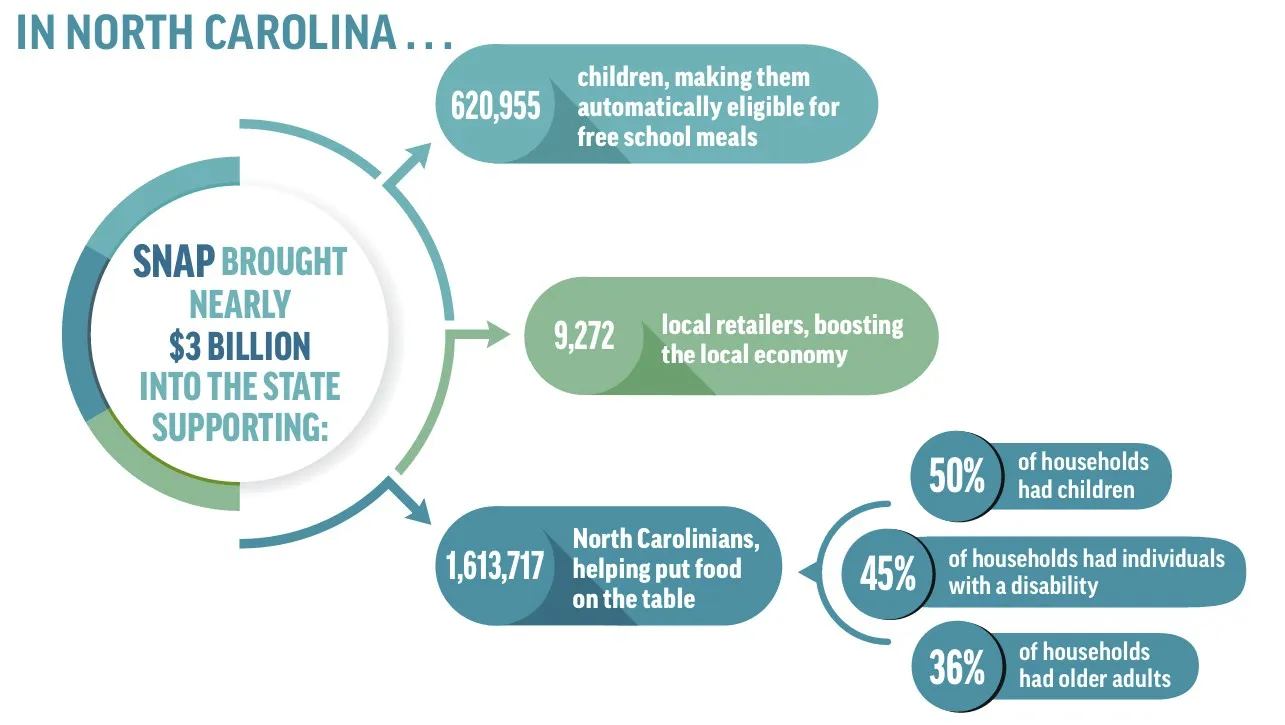Raleigh, NC - As the government shutdown continues, Supplemental Nutrition Assistance Program (SNAP) benefits will stop this weekend if the Trump Administration continues to refuse to use existing contingency funds to continue the program. This callous decision by the Trump Administration will have devastating consequences for millions of families who rely on SNAP benefits to put food on the table—and could leave hundreds of thousands of children without access to regular, nutritious meals at school.

Credit: National Education Association (NEA)
SNAP funding has brought in nearly $3 million into North Carolina and benefits have helped more than a million North Carolinians put food on the table. In our state, four in five SNAP households include a child, senior, or adult with a disability. Among participating households:
- 50% of households had children
- 45% of households had individuals with a disability
- 36% of households had older adults.
SNAP plays a crucial role in addressing hunger and poverty across North Carolina, where 12.5% of residents live below the poverty line—giving the state the 17th highest poverty rate in the nation. North Carolina also ranks 15th in child poverty, with more than 374,000 children (16.2%) living in poverty.
The federal government shutdown threatens to disrupt critical nutrition programs that North Carolina students and families rely on every day. The Federal School Lunch Program, Federal School Breakfast Program, and Community Eligibility Provision (CEP) all depend on federal reimbursements to provide free and reduced-price meals to students. If funding is delayed or halted, school districts will be forced to cover meal costs on their own—an unrealistic expectation as many are already operating without a finalized state budget. More than 1,600 schools across North Carolina adopted CEP during the 2023-2024 school year, benefiting over 800,000 students. Without federal support, these schools could struggle to continue offering universal meals, leaving students, especially those from families who also rely on SNAP benefits, at greater risk of food insecurity both at home and at school.
“These benefits are literal lifelines for North Carolinians," said NCAE President Tamika Walker Kelly. "Without them, families will struggle to put food on the table. No one deserves to go hungry—especially our children. The potential loss of these benefits means kids could lose access to food not just at home, but at school as well. There’s only one word for that: unacceptable.”
The North Carolina Association of Educators calls on the Trump Administration and the USDA to release contingency funds and keep SNAP benefits flowing to families in need across the country.
